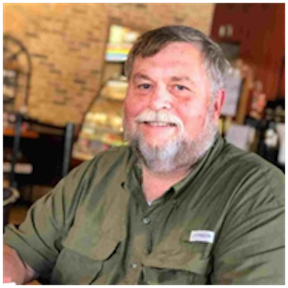John Howell Column
Published 12:00 am Friday, October 24, 2008

It keeps going through my mind what an incredibly decent guy Armistead Flint was.
As was his brother before him.
During my lifetime Calvin and Armistead Flint and their family hardware store have been as tightly woven into the fabric of Batesville’s identity as the railroad that runs through the middle of the Square.
Their grandfather, Calvin Hubbell Flint, Jr., had been married to their grandmother in 1886 by Rev. James W. Bates, the preacher and railroad conductor for whom Batesville was named.
Three years later, in 1889, he would establish a hardware business which survived a depression in 1907 that so paralyzed businesses the local bank only allowed them $15 a day for operations, then another depression triggered in 1915 by the arrival of the boll weevil to Mississippi, then the Great Depression of the 1930s and then destruction of their store and its contents by fire in 1954.
That the business prospered in spite of adversity came not simply because their door also happened to be open when times became more prosperous. There was also an intangible that has been perhaps best captured by an observation made by former Mayor Bobby Baker on several occasions: “When you buy a faucet washer there, you don’t just buy a washer, you buy a Flint.”
Meaning, of course, that with your purchase came their knowledgeable instructions about how to install, use, assemble or repair the product or problem.
But to describe it as a Flint business ethic would be inadequate. It extended beyond business into every layer of their lives from their families and homes to their church to friends and civic and business associates.
My recollections of visits to their store when I attempted to repair home plumbing emergencies now hold a special place among fond memories. I would describe my problem to “Mr. Calvin,” and he would gather the pieces needed for my repair while he patiently explained — sometimes more than once — how to accomplish it.
Then he’d total the assorted washers, bolts, rings and whatever, and my purchase would amount to less than a dollar. The treatment and the amount was the same whether the visit was made during store hours or after hours in response to a desperate phone call.
Business as usual.
Do you remember the 1994 ice storm when every available chain saw within many miles was pressed to service as we tried to cut our way from under the deluge of broken limbs that had accumulated in piles over everything?
“Mr. Armistead” worked nights and weekends unto exhaustion as he tried to keep those saws repaired. Again, business as usual though the circumstances that triggered the business were certainly unusual.
The brothers had different interests, but those differences complemented each other as strength in their business union. They had their opinions, but they weren’t opinionated. (Except maybe for Armistead and his love for Mississippi State.) Their customers were their friends, and their friends were friends whether they were customers or not.
Their early lives coincided with the last years of their grandfather’s life. They saw their sons and grandsons carrying their business forward. Their own lives were rich and full. They appreciated that and enriched our lives in return.
Armistead’s death last week followed his brother’s in March, 2006, and marked the end of a significant chapter in Batesville’s life and history.
I recall that once years ago Louise Land was asked, “What is it you like about Batesville?”
She paused while she thought.
(And I thought to myself: there’s no abundance of rich natural resources here, no abundance of anything rich, for that matter. We’ve razed our most significant historic structures, there are neither royalty nor superstars among us — this was back in the day, before the Streak —, there’s …)
“The people,” she said.





